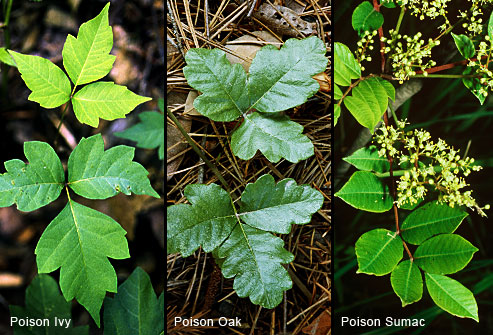The best way to explore and enjoy the great outdoors is to do it in a relatively safe manner, thus, having the knowledge to be safe while outside is imperative. The outdoors yields inherent risks, but if you take responsibility for your safety, it will provide you with the confidence needed for a lifetime of enjoyable outdoor experiences. The resources linked below will get you started on thinking about what you need to be safe, as well as how to be a good steward of the outdoors during your outings.
Protect Yourself from Deer Ticks and Lyme Disease
-
This blog, by former Stewardship Outings intern Nick Yoder, highlights the correlation between alien weeds and deer ticks versus the reduced risk found in healthy areas home to native plants and animals (June 21, 2016).
-
This NPR interview has Kojo Nnamde speaking with local experts on ticks and Lyme Disease (July 3, 2019).
-
This brochure, Created by Outings interns Mary Schaefer, Katie Holmes, Annika Leiby, and Alex Reardon, discusses the correlation between Lyme disease, deer ticks, deer overpopulation, control of invasive weeds, how to protect yourself, as well as how to join in the efforts to protect natural habitats and their native plants and animals (July 2017).
- Remove all alien invasive (though nice smelling) bush honeysuckle from your yard. In this study, the density of nymph life-stage ticks infected with bacteria that cause human disease was roughly 10 times higher when there was bush honeysuckle. https://news.wisc.edu/invasive-shrubs-increase-spread-of-tick-borne-disease/
Protect Yourself from Poison Ivy, Oak and Sumac
These are native plants that produce a sticky, long-lasting oil that causes an itchy, blistering rash in most people if it touches the skin. Here are some sources of information about these plants and how to avoid or treat the rash if contact is made:

Covid-19 Guidance
Follow all CDC, State, and all local pandemic guidance and precautions as closely as possible.
https://www.cdc.gov/coronavirus/2019-ncov/community/large-events/considerations-for-events-gatherings.html
https://governor.maryland.gov/coronavirus/
Sierra Club COVID prevention protocols: While we highly recommend vaccination and boosters for all, outings and events may include vaccinated and non-vaccinated participants. Masks are not required when outdoors where physical distancing is feasible. Masks might required indoors. All participants should have a mask handy for any situation that arises where donning a mask may be warranted, including working closely together or sharing vehicles with people outside your household. Be aware of other participants' need for personal space. If you have had recent close contact with someone with known COVID19 or have any of the following symptoms or begin to feel ill, do not attend this outing or event: Fever or chills; Congestion or runny nose; Headache; Shortness of breath or difficulty breathing; Nausea or vomiting; Muscle or body aches; New loss of taste or smell; Sore throat. All participants must provide contact information to facilitate contact tracing. If anyone develops COVID symptoms or has a positive COVID test during the 2 weeks following this event, please notify the leader. COVID protocols might change depending on conditions and new recommendations from health officials.
References for staying safe outdoors during the pandemic:
https://acacamps.app.box.com/s/7gkh9buu3ntssx2v38gajg4z94631lag
https://www.nols.edu/en/covid19-practices/
https://www.mountaineers.org/membership/the-mountaineers-covid-19-response
https://www.mountaineers.org/volunteer/leader-resources/covid-19-resources/covid-19-guidance-for-leaders/view
https://www.outdoors.org/policies-covid
Additional Useful Resources
Info on how to treat snakebites in the event that you or someone you are with is bitten.
Info on what to do if you get lost in the woods and a list of essential gear to bring with you prior to any outings.
Info on Leave No Trace principles: Leave the natural environment as you found it! Pick up any trash you see on your outings and don’t leave any behind when you leave!